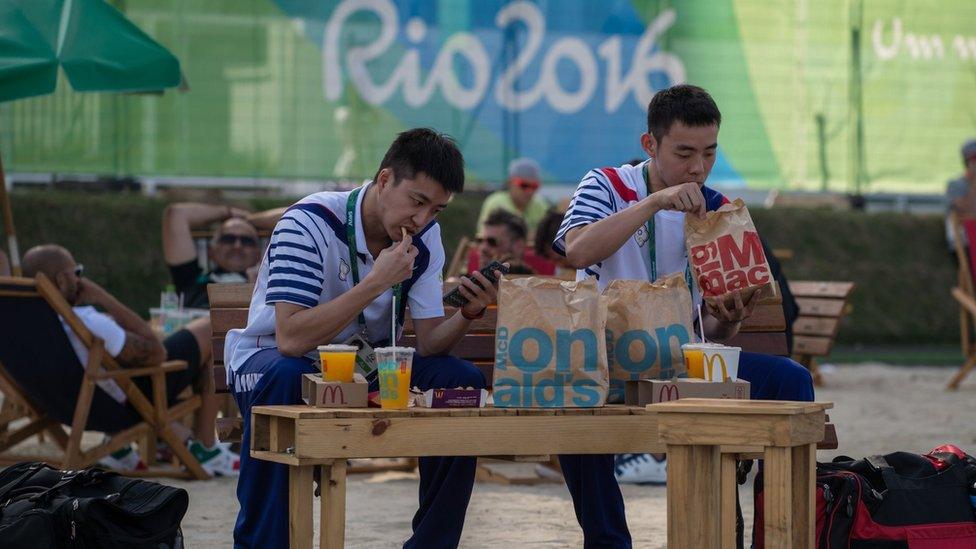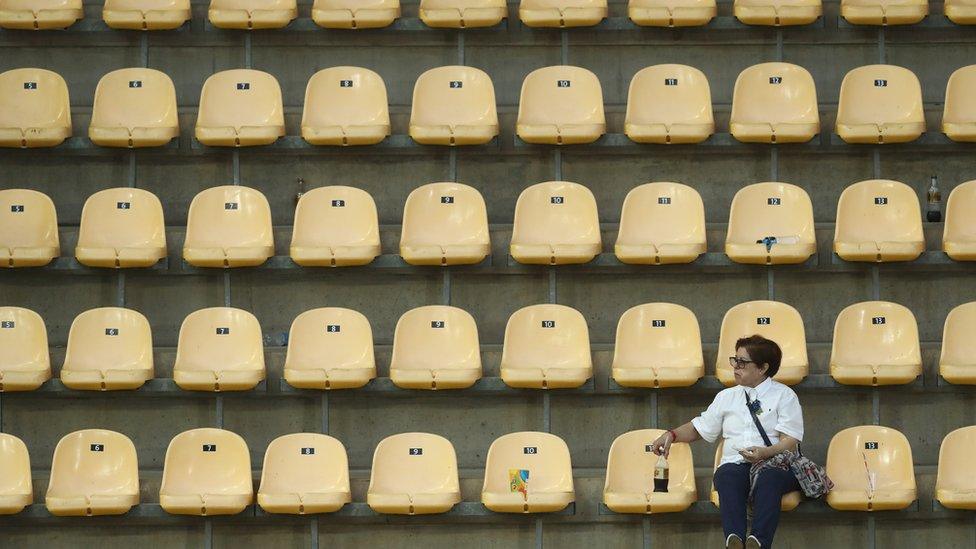Rio 2016: Venues struggle to meet demand for food and drink
- Published

These competitors in the athletes' village found food, but many sports fans have not been so lucky
Olympics organisers are struggling to supply enough food and drink at some Rio venues, but say they are confident the problem can be solved.
Visitors have been allowed to leave venues to find supplies elsewhere, organising committee spokesman Mario Andrada said.
He said extra food and water supplies were on their way.
Some venues have also struggled to fill seats, even for the most popular sports in Brazil such as football.
Correspondents say the problems suggest that the rush to complete the basic infrastructure at the Games has meant some tests on the systems have not been possible.
Mr Andrada confirmed that the International Olympic Committee (IOC) had complained about the lack of food and drink at some events.
But he added: "Harsh words are how partners sometimes work.
"Even team-mates on the field of play shout at each other sometimes - it's a heads-up moment and part of life. The issue is how fast you fix these problems and no event of this size will be trouble-free."

Large numbers of empty seats have been seen at many events
Mr Andrada said they were allowing people to leave the venues for food and water "because this eases the pressure" on supplies inside the gates.
He said there would soon be "new food trucks, more efficient water supply, and free water supplies for the public standing in line".
Mr Andrada also said bigger crowds were being seen at the more central venues and popular sports, as ticket sales have picked up.
Many fixtures have taken place amid chunks of empty seats. Even Brazil's football team failed to attract a capacity crowd for their first match at the Games.
About 100,000 tickets were sold on Monday, about 82% of those available, Mr Andrada added.
He said he expected Brazil's first gold medal win on Tuesday to further help sales.
An average of about 10,000 tickets per day were being sold about two weeks before the Games started.
"We wish we could have done this before but we're not complaining, we're looking to the future and we're going to sell more and more," Mr Andrada said.
Long delays at security checkpoints have also been blamed for the low turnout.